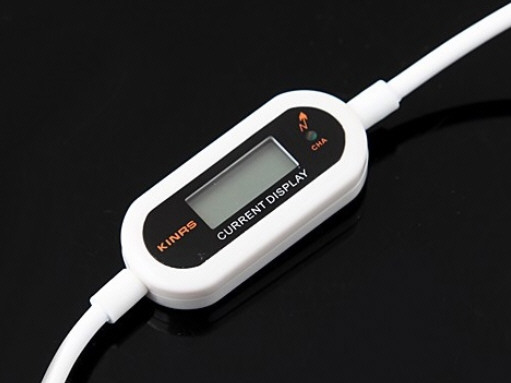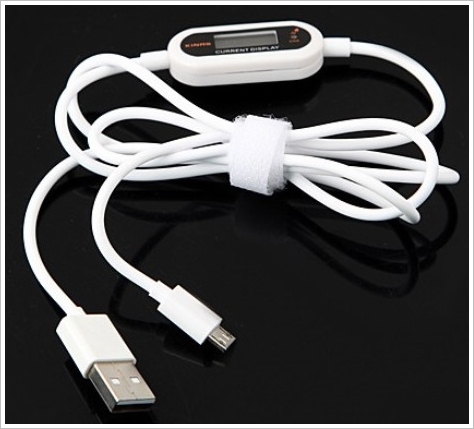We’re not exactly sure how much of a thing this is, but we’ve personally experienced one smartphone meltdown over the past few months due to some issue or another with charging. The symptom was waking up to a dead phone, which had been plugged in overnight to the mains microUSB charger cable. The back of the phone was very hot.
Now we can’t say why this happened, whether it was a faulty phone or power spike or something else, but there’s no question that USB charging is now not as simple as it was before. There are different load demands for different devices, and components are more sensitive to variations. Which is why this Circuit Guard Voltage Protection USB Charging Cable makes sense.
The product monitors the voltage and current heading from the power source to your phone or tablet, and if it detects a dangerous anomaly (e.g. if the voltage is higher than 5.6V or the current more than 2.5A, it will display a HI warning and stop charging to protect the device. It also doubles up as a data sync cable, which is handy.
It’s compatible with almost all microUSB charge devices on the market, and costs $11.45.






Brilliant!
Couldn’t find a supplier in the UK so I ordered two from the makers.
Their postage charges to Europe are very reasonable!
Brilliant!
Couldn’t find a supplier in the UK so I ordered two from the makers.
Their postage charges to Europe are very reasonable!
Brilliant!
Couldn’t find a supplier in the UK so I ordered two from the makers.
Their postage charges to Europe are very reasonable!
Brilliant!
Couldn’t find a supplier in the UK so I ordered two from the makers.
Their postage charges to Europe are very reasonable!
Brilliant!
Couldn’t find a supplier in the UK so I ordered two from the makers.
Their postage charges to Europe are very reasonable!
Cool, let us know how you get on with them. :)
One for myself and one for a colleague. Ordered 20/2 and they were delivered 06/3.
US$ 28.05 for the two including postage to the Netherlands and after conversion they cost me EUR 21.14.
Instructions (only in Chinese) are on one small sheet of paper.
Plug it into a USB port and connect your device to see the number of milliamperes being drawn/delivered. While charging my phone it’s about 445 with small fluctuations and when fully charged this drops to 70. I haven’t tested it with a power overload yet.
Oh excellent feedback, thanks. ;)